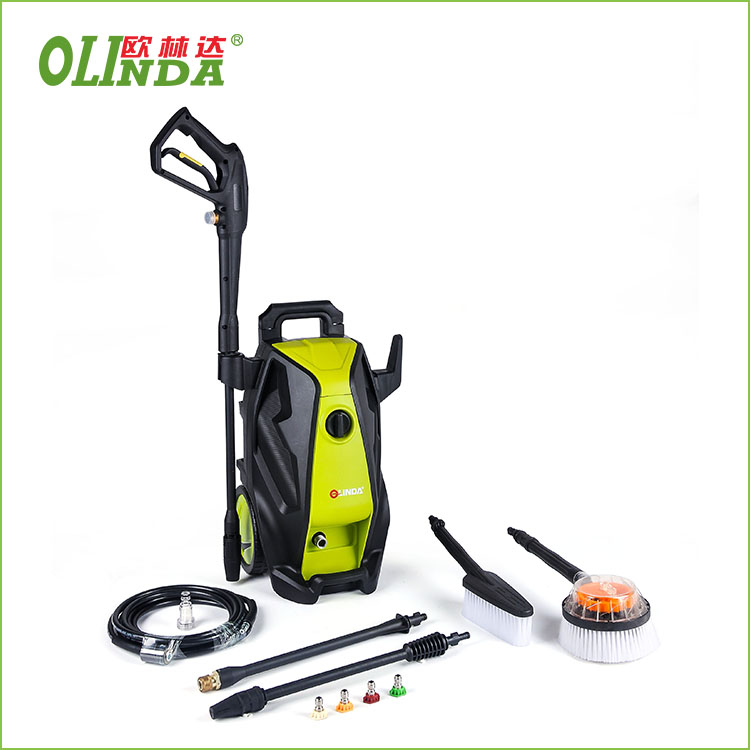Key features and considerations of electric pressure washers
2024-04-10
An electric pressure washer is a cleaning device that uses an electric motor to power a pump, which pressurizes water from a garden hose or other water source. The pressurized water is then expelled through a wand or nozzle at high velocity, allowing for effective cleaning of various surfaces.
Here are some key features and considerations of electric pressure washers:
1. Power Source: Electric pressure washers are powered by electricity, typically from a standard household outlet. This makes them convenient to use in residential settings, as they do not require fuel or batteries.
2. Motor: Electric pressure washers use an electric motor to drive the pump. These motors are usually lightweight, quiet, and require minimal maintenance compared to gas-powered engines.
3. Pressure Rating: Electric pressure washers come in a range of pressure ratings, typically measured in pounds per square inch (PSI). Higher PSI ratings indicate greater cleaning power, allowing the pressure washer to tackle tougher cleaning tasks.
4. Flow Rate: Flow rate, measured in gallons per minute (GPM), indicates how much water the pressure washer can deliver per minute. A higher flow rate can help increase cleaning efficiency by rinsing away dirt and debris more effectively.
5. Portability: Electric pressure washers are generally more compact and lightweight than their gas-powered counterparts, making them easier to transport and maneuver. Many models come with built-in wheels and handles for added portability.
6. Versatility: Electric pressure washers are suitable for a wide range of cleaning tasks, including washing vehicles, cleaning outdoor surfaces such as decks and patios, removing dirt and grime from siding, and more. They often come with interchangeable nozzles or spray patterns to adjust the spray angle and intensity for different applications.
7. Noise Level: Electric pressure washers tend to be quieter than gas-powered models, making them more suitable for use in noise-sensitive environments, such as residential neighborhoods.
8. Ease of Use: Electric pressure washers are generally easy to operate, with simple controls and startup procedures. They typically require less maintenance than gas-powered models and do not require fuel mixing or engine maintenance.
9. Environmental Impact: Electric pressure washers produce zero emissions during operation, making them a more environmentally friendly option compared to gas-powered models. They also use water more efficiently, as they do not require water to be heated for operation.
10. Cost: Electric pressure washers are often more affordable than gas-powered models, both in terms of upfront cost and long-term operating expenses. They also tend to have lower maintenance costs and longer lifespans.
Overall, electric pressure washers are convenient, versatile, and efficient cleaning tools suitable for a wide range of applications in residential and light commercial settings. They offer an eco-friendly alternative to gas-powered models while providing sufficient cleaning power for most household cleaning tasks.



